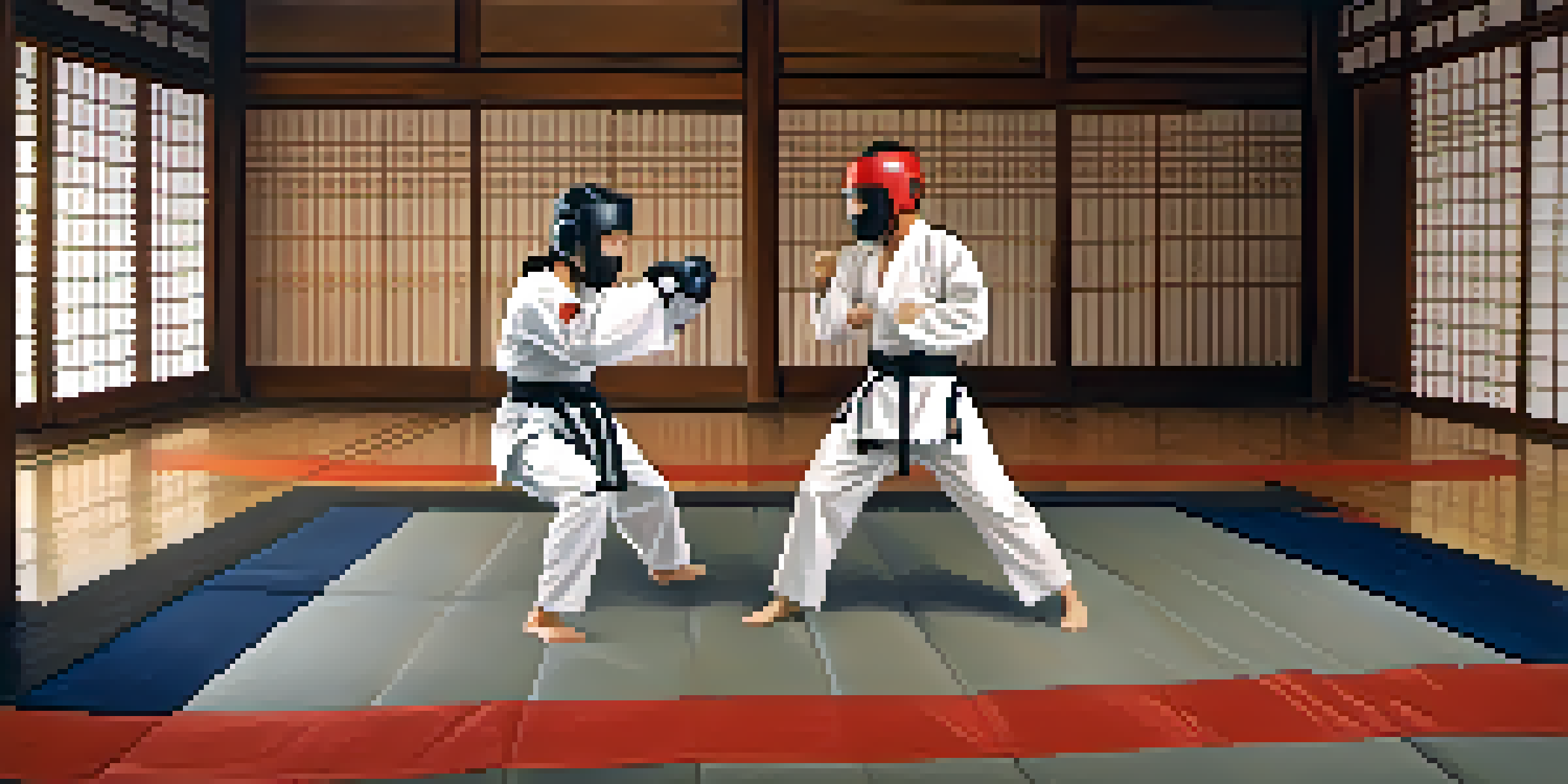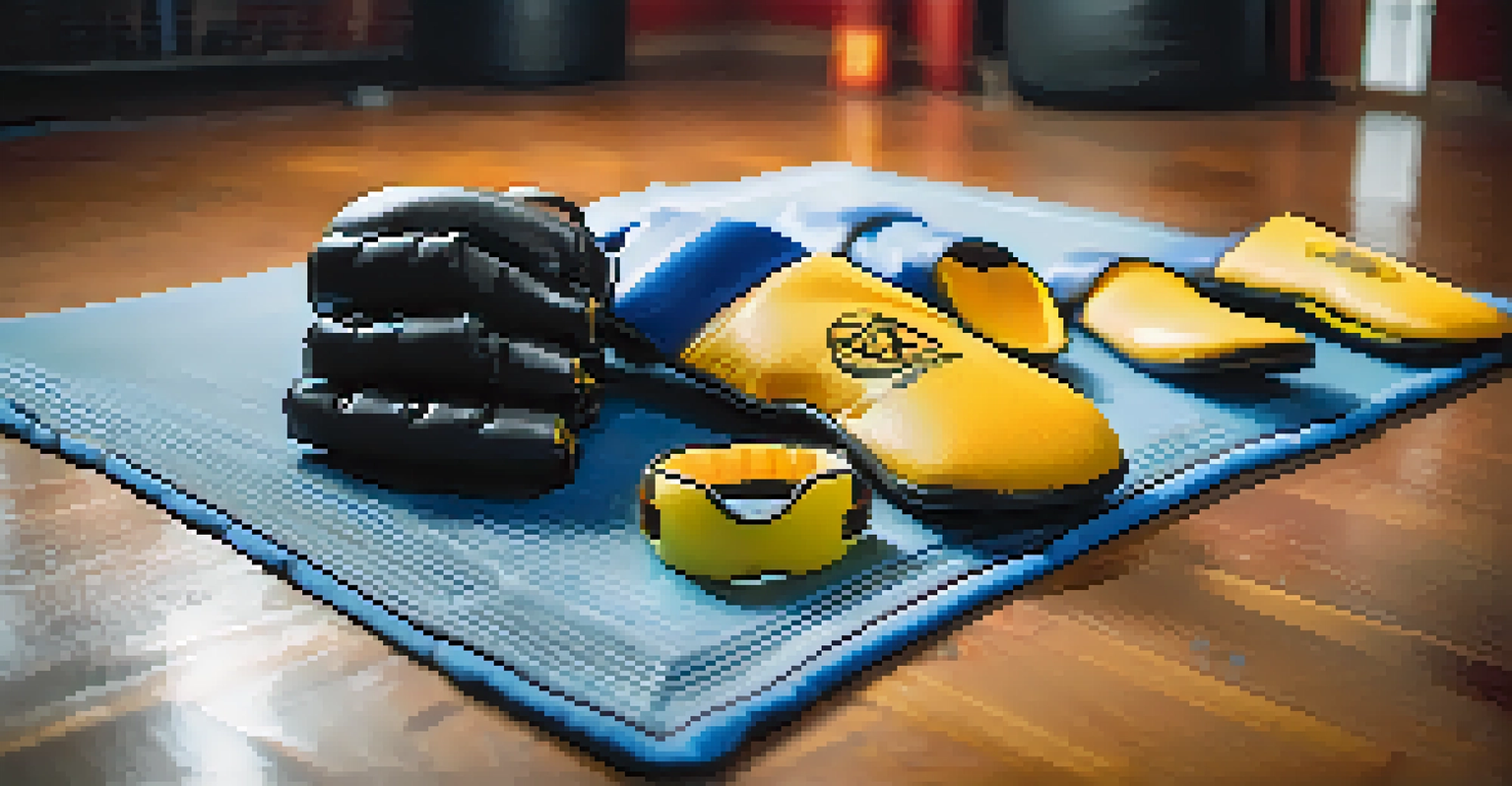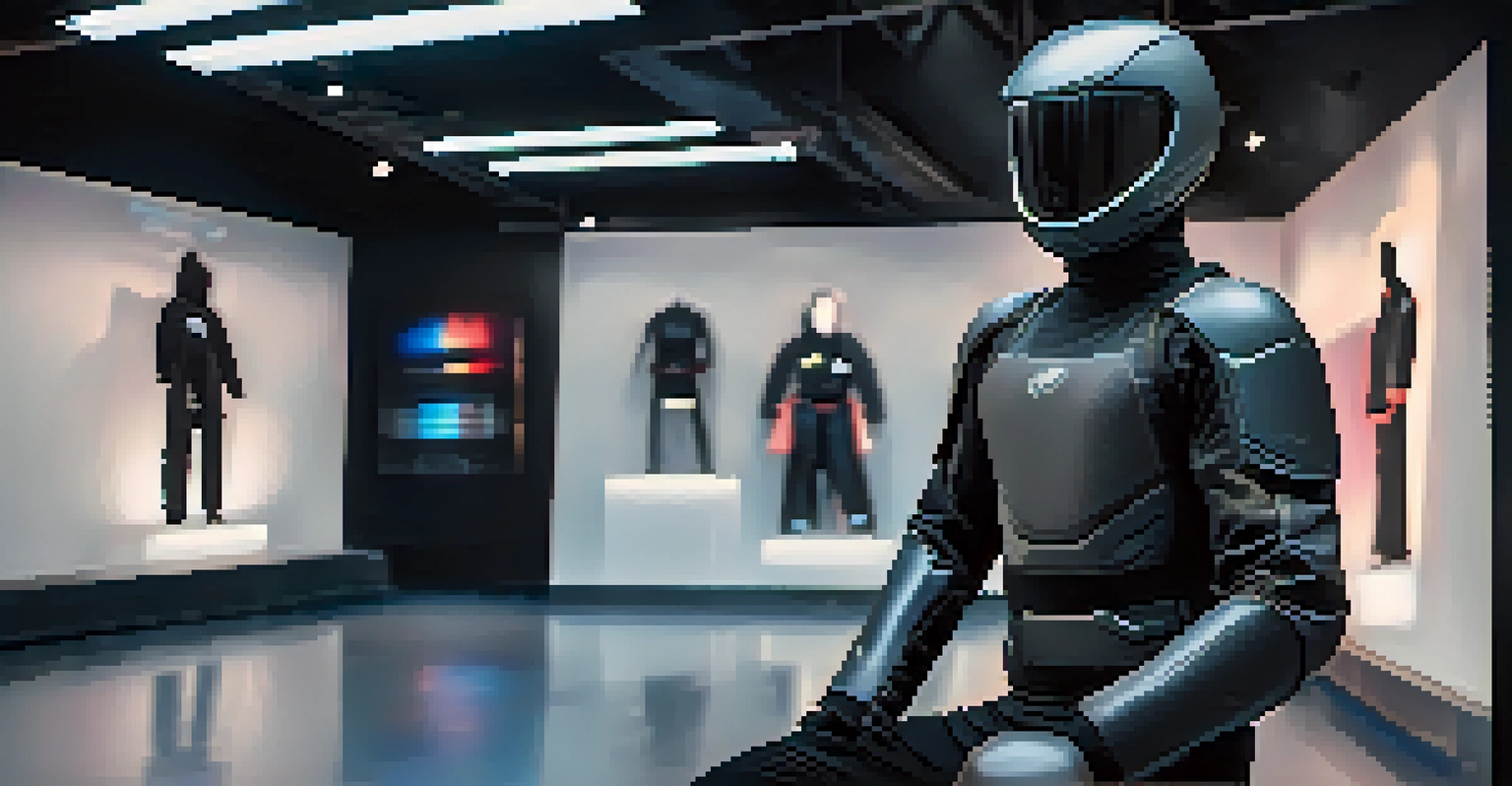Importance of Protective Gear in Martial Arts Training

Why Protective Gear is Essential for Martial Arts Training
Protective gear is crucial in martial arts training as it minimizes the risk of injury. During practice, even experienced martial artists can misjudge a move, leading to accidental strikes. Proper gear acts as a safety net, allowing practitioners to focus on technique without the fear of harm.
Safety isn’t just a set of rules, but a mindset that empowers performance.
Think of protective gear as the safety harness when rock climbing. Just as a harness enables climbers to tackle challenging routes with confidence, protective gear empowers martial artists to push their limits safely. This creates a more enjoyable and productive training experience.
Related Resource
Ultimately, the right protective equipment fosters a culture of safety and respect in martial arts. It not only protects individuals but also promotes a supportive training environment where everyone can thrive without the fear of injury.
Types of Protective Gear Used in Martial Arts
Martial artists utilize various types of protective gear tailored to their specific discipline. Common items include headgear, mouthguards, shin guards, and chest protectors. Each piece serves a distinct purpose, ensuring that different body parts are safeguarded during training sessions.

For instance, headgear is designed to absorb impacts during sparring, while shin guards shield the lower legs from kicks. Mouthguards protect teeth and jaws, which are especially vulnerable during intense bouts. Wearing the appropriate gear is vital for reducing injury risk.
Protective Gear Minimizes Injuries
Wearing appropriate protective gear significantly reduces the risk of injury during martial arts training.
It's important to choose gear that fits well and is made from high-quality materials. Ill-fitting equipment can hinder performance and compromise safety, negating the benefits of protective gear. Therefore, investing in the right gear is not just a safety measure but a commitment to personal growth.
The Role of Protective Gear in Sparring Sessions
Sparring is a key component of martial arts training, where practitioners apply techniques in a controlled environment. Protective gear is particularly important during these sessions, as it helps prevent injuries that can occur from strikes and falls. Without proper protection, sparring could quickly turn hazardous.
The only way to avoid injury is to prepare for it.
Imagine sparring without gear like playing football without helmets – it can lead to serious injuries. Gear allows martial artists to engage in realistic training scenarios while remaining protected from the physicality of the sport. It encourages more aggressive practice while maintaining safety.
Related Resource
Furthermore, wearing protective gear promotes confidence among sparring partners. Knowing that both participants are well-protected fosters a sense of trust, allowing them to train more effectively and push each other’s limits without the fear of injury.
Injury Prevention: A Core Benefit of Protective Gear
Injury prevention is perhaps the most significant advantage of using protective gear in martial arts. Studies have shown that athletes who wear appropriate gear experience fewer injuries compared to those who train without it. This is particularly crucial in high-impact disciplines like karate or taekwondo.
For example, a well-fitted mouthguard can significantly reduce the risk of dental injuries during sparring. Similarly, padded gloves can soften the impact of strikes, protecting both the practitioner and their opponent. This emphasis on safety allows for a more enjoyable training experience.
Psychological Boost from Gear
Donning protective equipment enhances focus and confidence, allowing martial artists to train more effectively.
As martial artists progress, the likelihood of encountering more aggressive opponents increases. Protective gear becomes indispensable in these situations, ensuring that everyone can train hard while minimizing the chance of injury. It truly is a win-win for everyone involved.
Psychological Benefits of Wearing Protective Gear
The psychological benefits of wearing protective gear in martial arts training are often overlooked. When practitioners don their gear, it can instill a sense of readiness and focus, signaling that it's time to train seriously. This mindset can enhance performance and dedication during sessions.
Moreover, the act of putting on protective gear can create a ritual that mentally prepares athletes for training. Just like athletes have pre-game routines, wearing gear can help martial artists transition into their training mindset. This can lead to improved concentration and overall effectiveness.
Related Resource
Feeling secure due to protective gear also allows martial artists to take calculated risks in their training. They can experiment with techniques and sparring without the constant worry of injury, leading to greater skill development and success in their martial journey.
Choosing the Right Protective Gear for Your Discipline
Selecting the right protective gear is crucial and varies depending on the martial art practiced. For instance, kickboxing gear prioritizes shin guards and gloves, whereas Brazilian Jiu-Jitsu may focus more on mouthguards and protective cups. Understanding the specifics of your discipline ensures optimal safety.
It's essential to consult with instructors or experienced practitioners when choosing gear. They can provide valuable insights into the best options for your level and needs. Online reviews and recommendations can also guide your decisions, helping you make an informed purchase.
Future Innovations in Gear Technology
Advancements in protective gear technology promise improved safety and comfort for martial artists in their training.
Additionally, don’t forget about proper maintenance of your gear. Regularly check for wear and tear to ensure that your equipment remains effective. A well-maintained set of protective gear can last longer and provide better protection during your training sessions.
The Future of Protective Gear in Martial Arts
As martial arts evolve, so does the technology behind protective gear. Innovations such as lightweight materials and advanced shock-absorbing technology are making gear safer and more comfortable than ever. This evolution enhances the training experience for practitioners at all levels.
For example, some modern gear incorporates moisture-wicking fabrics to keep athletes cool and dry during practice. Others are designed with better mobility in mind, allowing for greater flexibility without sacrificing protection. These advancements are revolutionizing how martial artists train.

Looking forward, the integration of smart technology into protective gear is on the horizon. Imagine gear that can monitor impacts and provide feedback on performance. As we embrace these innovations, the importance of protective gear will continue to grow, ensuring safety remains a top priority in martial arts.